IFA 2018 Future Electronics Show in Berlin: How It Was
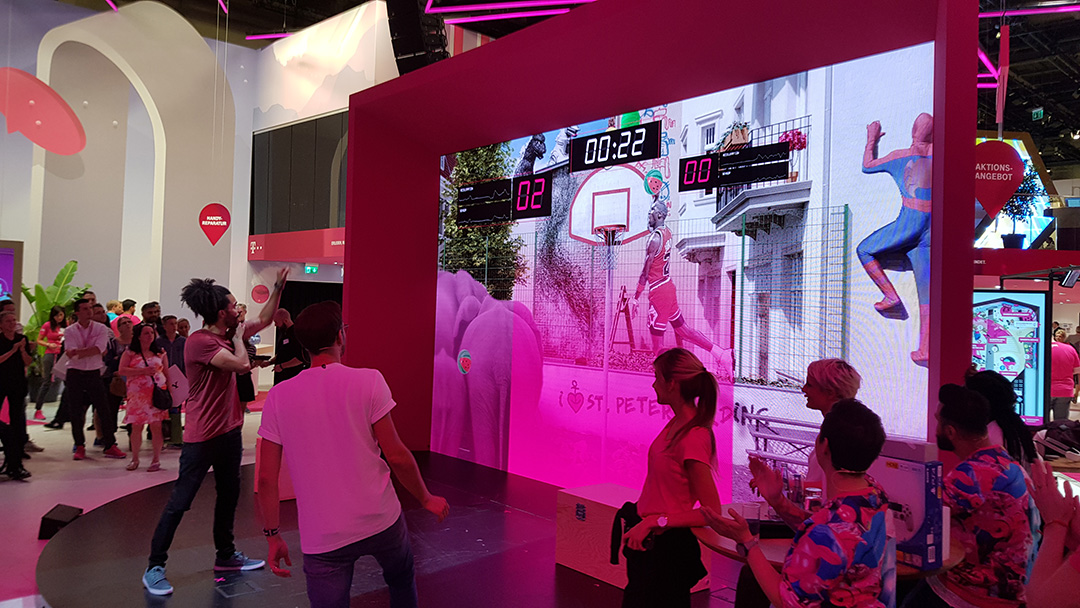
Last week I visited the exhibition IFA Berlin 2018, which was held from August 31 to September 5 in the Messe Berlin exhibition complex. This event with a very long history, which was first held in Germany in the 1920s. Not for nothing IFA stands for I nternationale F unk a usstellung, that is, "international radio exhibition."
Today it is the largest exhibition of electronics and home appliances, one of the most important in the world. Professionals from various countries, including the USA, China, Korea and Japan, come to her.
The last time I was on it in 2014, I decided to go in this, at the invitation of the university (in more detail about studying at the university in Germany I published a recent article on Habré ).
')
So, what was interesting about it?
(under the cut a large photo report with comments - cautiously, traffic)
I tried to describe my own impressions, without reading other people's review articles, through the lens of myself as a consumer. In some ways, my story will certainly be incomplete, but I will still try to enumerate everything that I managed to see with my own eyes and “touch” in the literal and figurative sense. And most importantly, I will try to convey the very atmosphere of the exhibition!
The largest international companies were represented at IFA Berlin 2018. Sony, LG, Philips, Panasonic, almost all major global brands. There were also less well-known, many I generally saw for the first time.
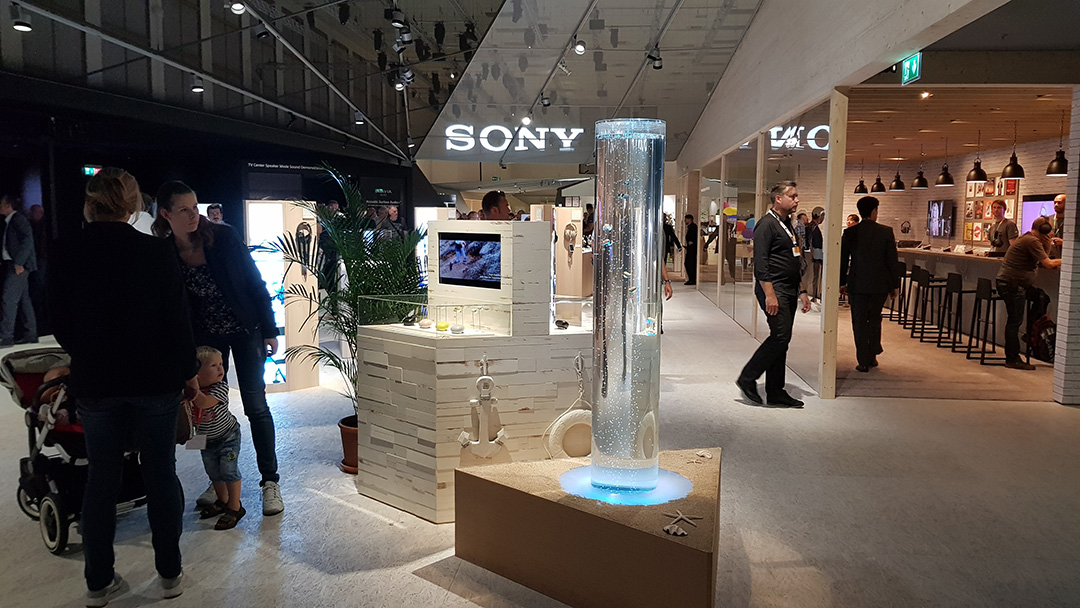
Smart devices have become the main theme of the exhibition this year. Previously, household appliances were just household appliances, but today marketers believe that appliances must be “smart”. Moreover, from their point of view, for this it is sometimes enough to implement Bluetooth and Wi-Fi in each coffee maker.
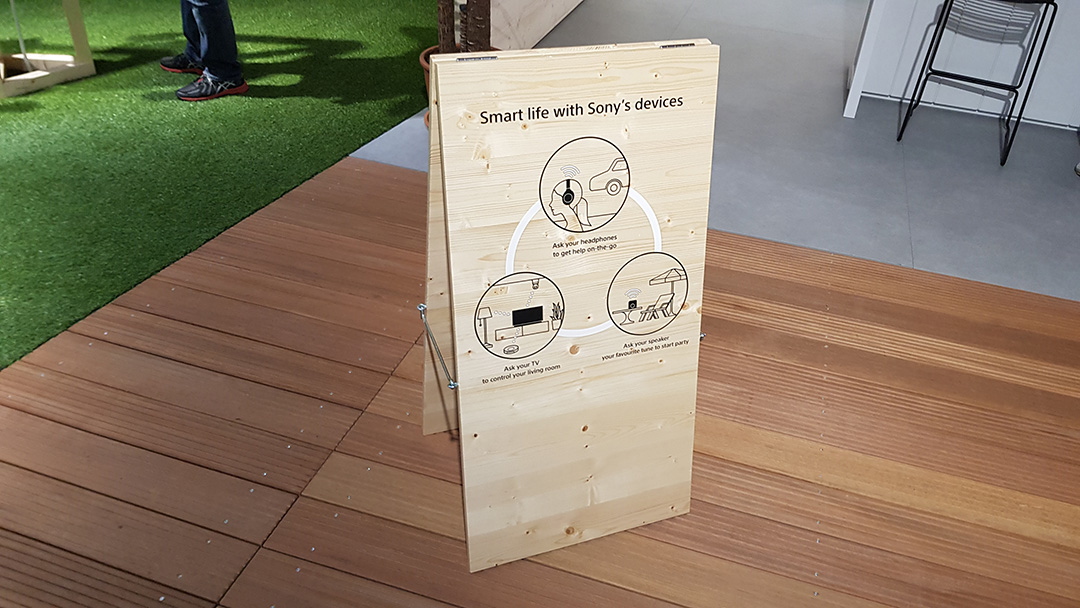
I liked the ultra-high energy-saving refrigerators. I think most Europeans will appreciate such developments, because they are very concerned about the environment.

Honestly, I was not interested in washing machines, but the stands simply amazed with their chic design.


Admittedly, the presented washing machines look really very stylish!

At this booth, they directly worked, spinning. Behind the waterfall worked. The design is top notch. Perhaps it is worth going to such exhibitions, including in order to admire the cool design.

Marketers have shown how they see the future. All electronics can be run remotely via mobile applications and control it from anywhere in the world where there is Internet.
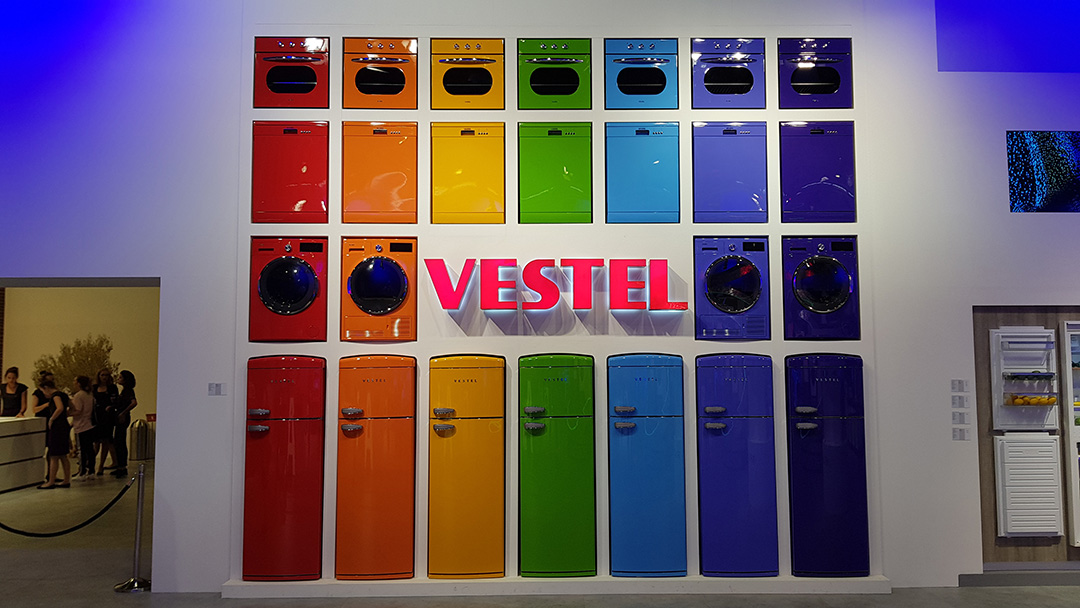
Does the future really need us, consumers?

About many products one can confidently say that they are really very interesting and technological, but from a practical point of view they are absolutely useless or simply inconvenient in everyday, everyday use. For this reason, not all of the presented devices will reach the mass market. Today, they can be considered only as concept art.
A number of booths were devoted to hair dryers, irons, coffee makers. Those who can again "turn on and off while on the opposite side of the planet." Why did manufacturers do this? Just show what they can.

There were a lot of household appliances, and this is not surprising, because traditionally the exhibition has always been dedicated to her.

There were even stands dedicated to tools for haircuts and shaving. The truth here did not understand that much invented and innovative invented.
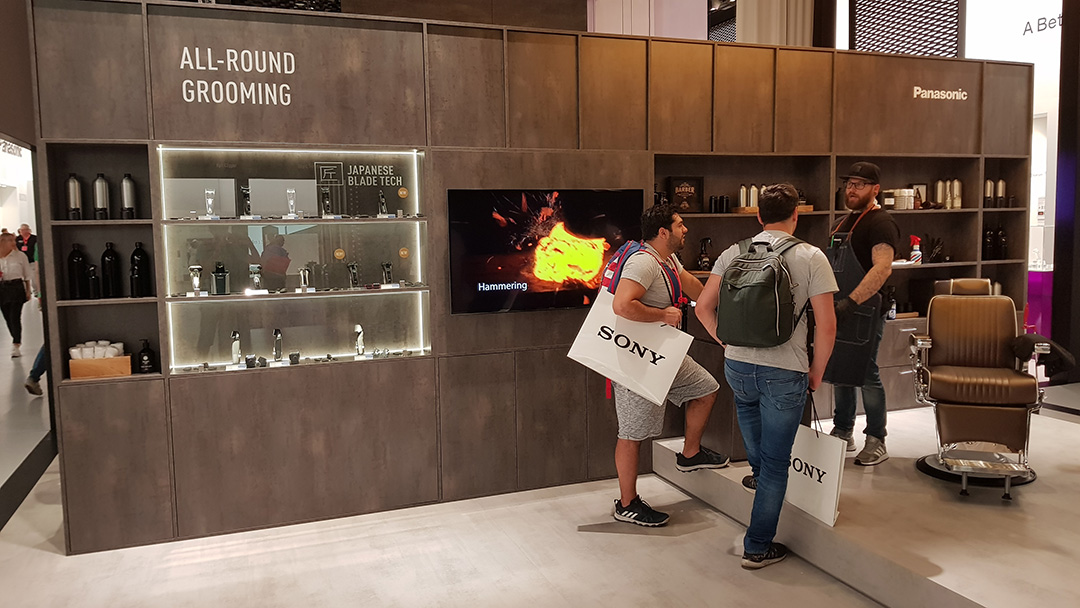
On Habré a lot of articles about "smart electronics", including in the commercial blogs of manufacturers. In the comments, it has repeatedly been rightly pointed out that all these products have a double bottom with a lot of vendor lock. The main thing is to commit to the company's cloud-server, which may one day be disconnected, leaving millions of devices without the ability to function.
What else can be made "smart"? Here you are: smart lighting. LED strips appeared on the consumer market back in the 1990s and were never considered an innovative technology in general. But it is necessary to shove such a tape into an expensive lamp of a beautiful shape (it will burn, so an excuse to buy a new, vendor lock) and add a control module via the Internet - now the innovation is ready.

I liked the stand with air conditioning, to run them remotely is really a very useful feature (as opposed to teapots and coffee makers). For Florida and the southern states of the United States, the usual story: having left even for a month and having forgotten to turn on the air conditioner, you can go back and see that the whole house was covered with mold. In Germany, it is quite funny to meet the advertisement of air conditioners, given the local realities. Companies apparently did not know which country they were being taken to.

In Germany, air conditioners are practically not at all common, you simply cannot find an air-conditioned apartment in Berlin, even with the willingness to pay double, and the Germans find very strange excuses: the investment is not justified, the electricity consumed is too expensive, too few really hot days in the summer, too bad for ecology, "you get cold from air conditioners".
Although in my opinion, all these arguments are not convincing. To roast in the summer with the window open while listening to the noise all day and night - this is both a decrease in the ability to work, and a bad mood, and generally one continuous negative. But the Germans shrug: "no one has an air conditioner, and I will not have." This is one of the major realities that I definitely do not like in Germany and Western Europe as a whole. I categorically refuse to put up with it and now I am looking for a way to install air conditioning in my apartment. I believe that climate control in 2018 is as self-evident as heating, electricity or the Internet. Alas, even in the most developed countries of the world do not think so.
The smart door lock devices seemed very interesting to me. This is a family of code locks that can be configured remotely. I travel a lot and know well the everyday hustle and bustle with the removable apartments: the inconvenience of handing over the keys, the eternal need to dock the time of the owner and the settled person, this is very tiring.
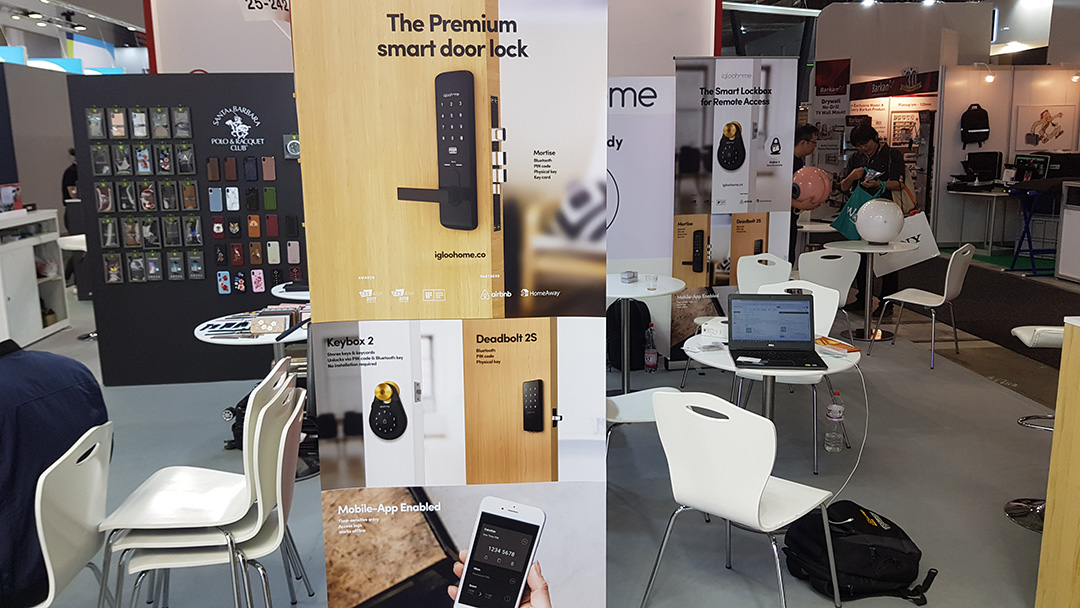
Such locks have been on the mass market for several years now and I will definitely purchase them. In the foreseeable future, I also plan to engage in the delivery of real estate for rent for a short time (AirBnb, Booking) and I already know how to organize the related business processes. It will be enough for my visitor to receive a message with the lock code, and everything, no keys, everything is configured through the application. And the apartment may be in Berlin, and I will be somewhere in Sydney. Here, smart functions are really very justified!

Much attention has been paid to security systems sensors, but here my attitude is already more skeptical. Their reliability raises obvious doubts, if only because everything is wireless (and the “not requiring complex deployment” is emphasized). Household radio frequencies are very easy to drown out, so I would rather treat such devices as imitating safety toys.

Integrated management of engineering systems at home. In my opinion, every electronics manufacturer strives to create his next smart home. Managing the temperature at home through a smartphone is not such an innovation these days, but I personally like the ideas presented. While I am not at home, air conditioning or heating is off, energy is saved. As soon as I give the command in the mobile application, the climate control will turn on and I will get home with a comfortable temperature. I wonder if there will be a function for the system to automatically see that I am already approaching the house?

One of the pilot topics of the exhibition were devices with a built-in voice assistant function. A lot of attention was paid to the Google Assistant voice assistants, Alexa and similar.
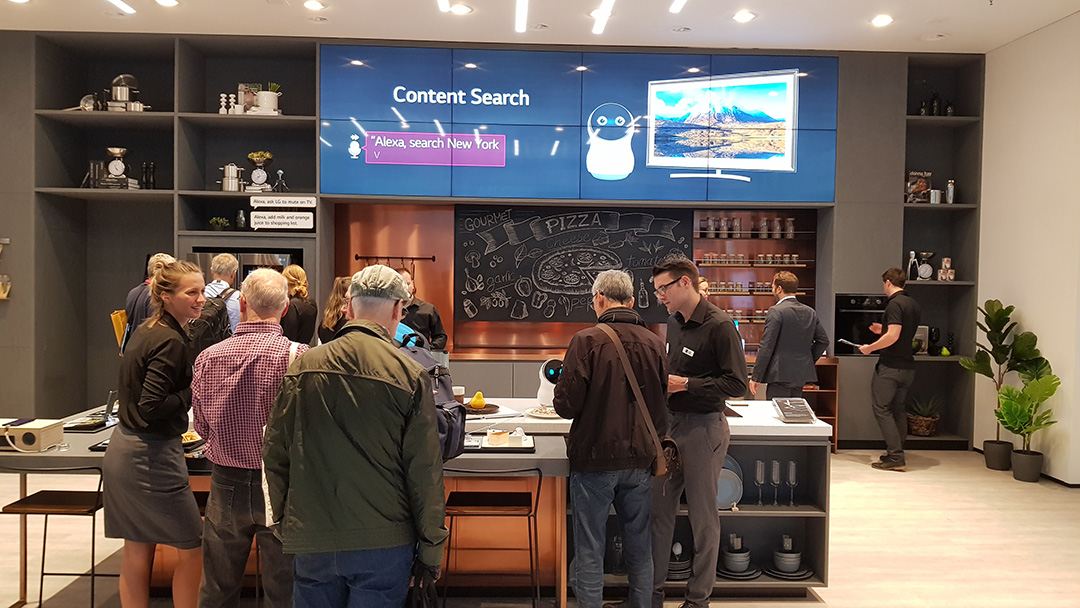
8k TVs were presented. I watched for a long time, came close, looked from afar, but did not notice the difference compared to 4k. Perhaps I would have noticed if they were standing nearby. I'm a big fan of video games, movies, TV shows, and I like to consume high-quality content in a comfortable environment, but even the difference between 1080p and 4K is uncritical for me.
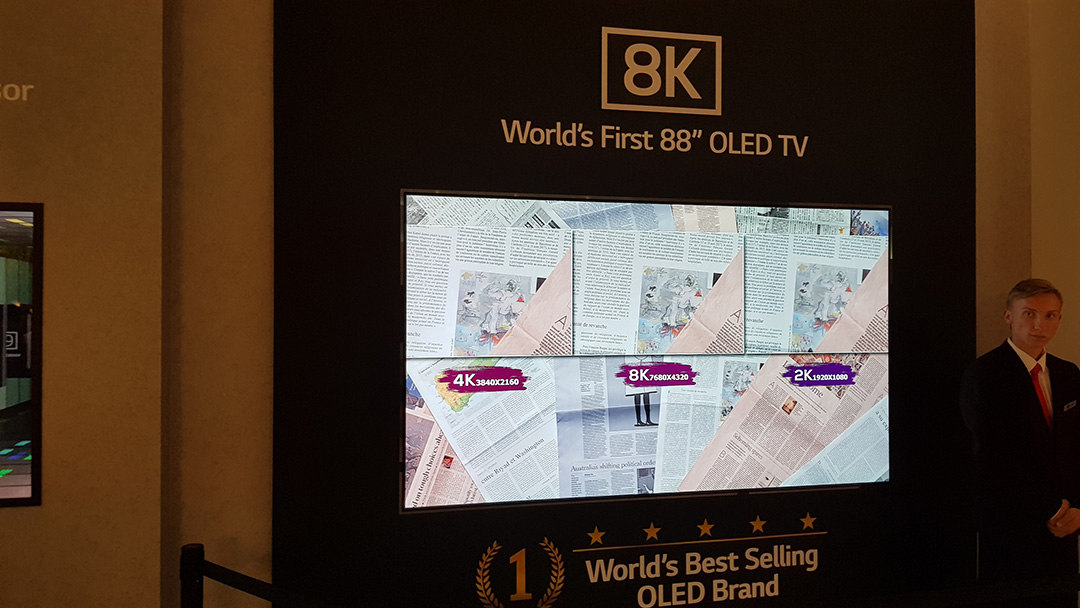
After all, they look really beautiful!

Tv manufacturers generally advertised a lot. It is understood that visitors will see "unique image clarity" and immediately run to throw out their old HD Ready and Full HD telephones. Although where there, already and 4k marketers will soon say to throw it away.

I liked the hall with dozens of screens showing LG OLED technology. Here advertising really turned out very effective. The hall is made simply gorgeous, with an excellent design taste. Feelings such that he visited the art gallery. All this with the appropriate music.
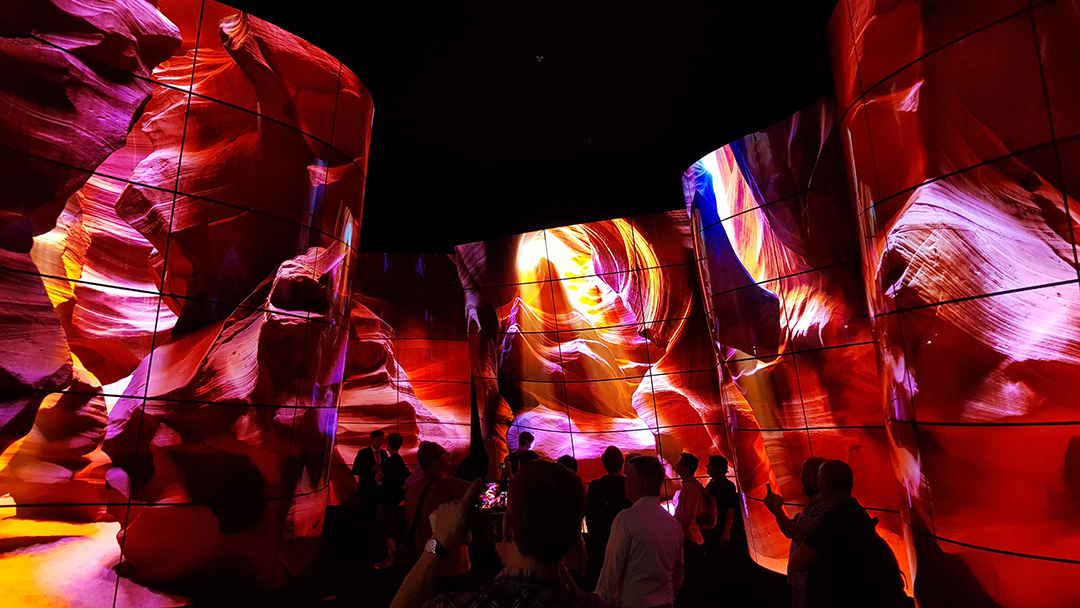


LG has generally surpassed itself this time. Not all of them do TV sets and home appliances, SuitBot seemed to me a really interesting idea. This is a real exoskeleton that has the purpose to reduce the load on the legs and the back of a person while performing physical work associated with lifting and moving weights. It is curious whether this product will find a mass consumer?
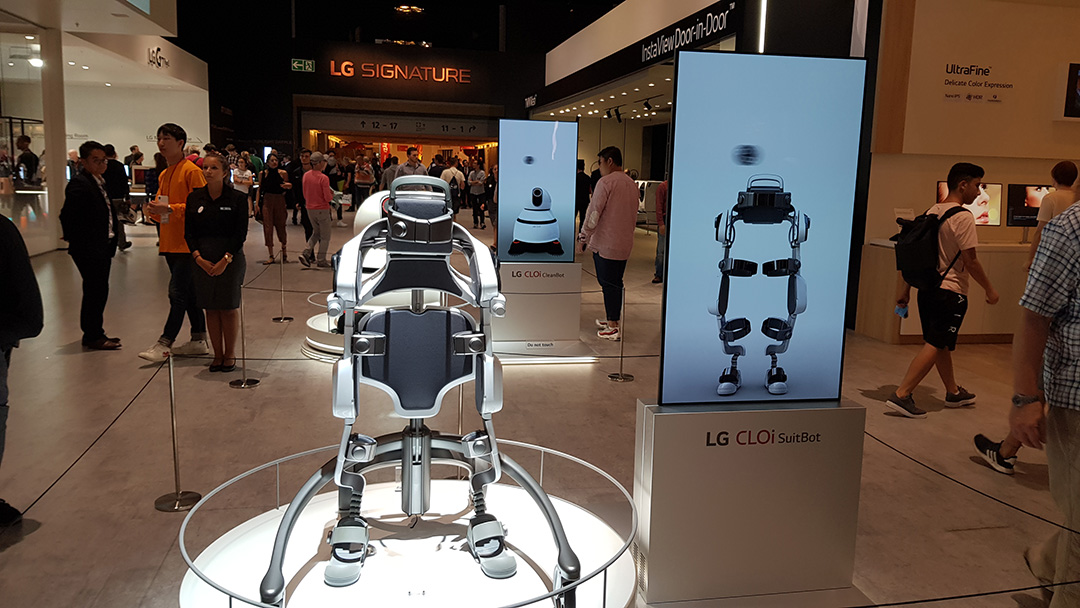
Than the exhibition was especially rich, so it is ideas for interiors. As is common with Europeans, everything is very simple and tasteful.

There is something unusual, non-standard.
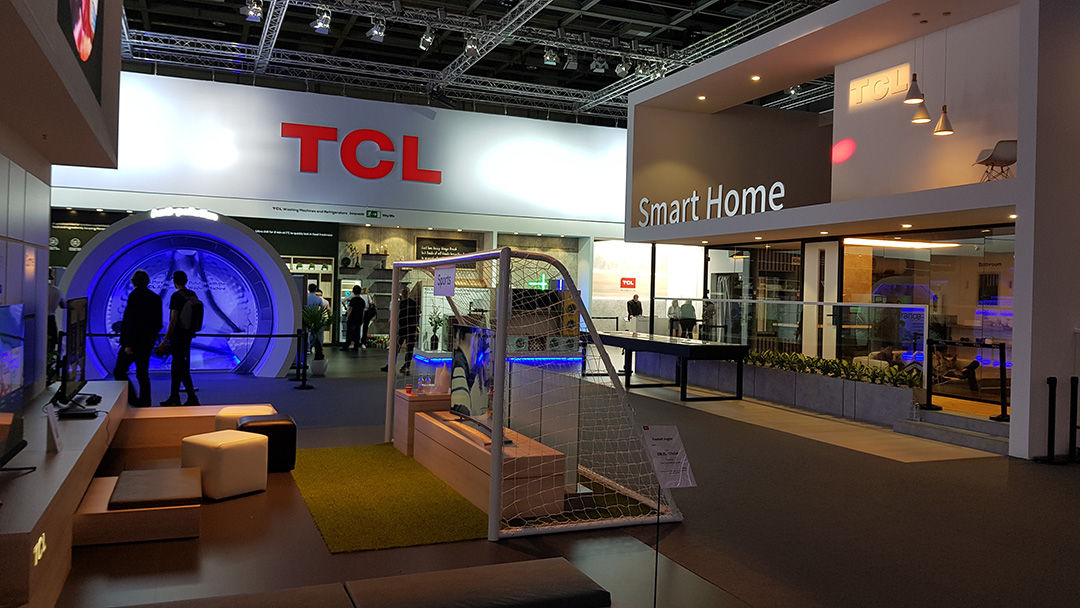
I think those who are interested in this area were able to pick up on the IFA a lot of creative ideas.
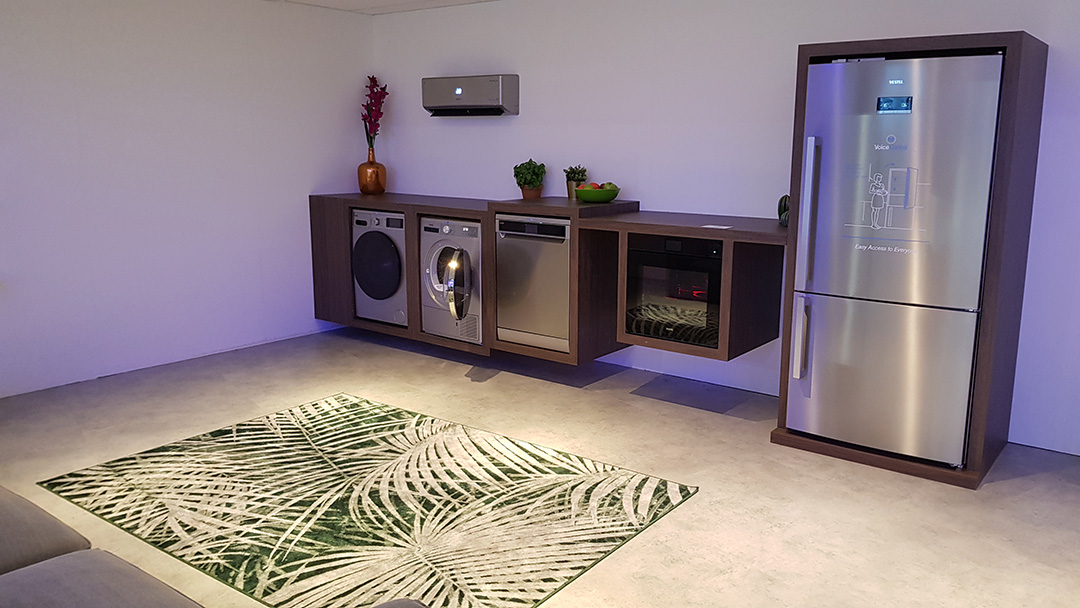
There were stands dedicated to smartphones and laptops, but quite a bit.

I liked the stylish Bluetooth speakers.

A little wifi radio.

Tube plate with the soundtrack from the movie "Guardians of the Galaxy."

It is curious that most of the inscriptions at the exhibition were in English and universal for everyone, without duplication into German (although in some places there was still duplication). The integration of the English language in Germany is several times higher than in Russia. English does not frighten anyone, all young people have no problems owning it, many middle-aged and older people too. There are no footnotes like “so good * * so good”, it would look extremely ridiculous - everyone understands it in English.
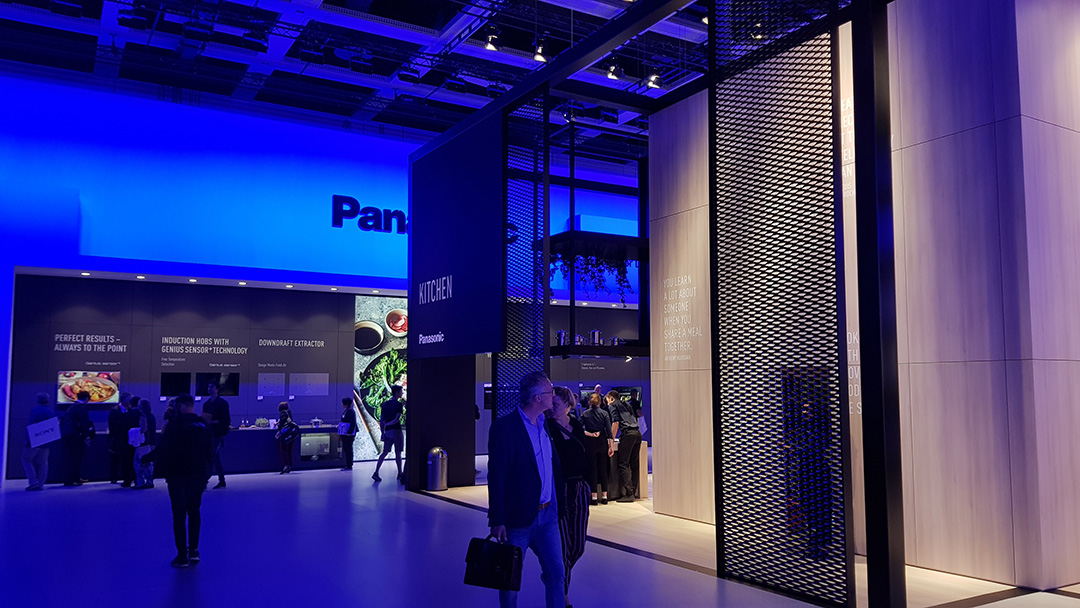
At the exhibition there were several rooms dedicated to computer hardware, consoles and video games. I was especially interested because I have been visiting game exhibitions since 2007 (I started from the Moscow exhibition Igromir, and now I regularly go to GamesCom and others).
There were several tournaments in which everyone could take part.
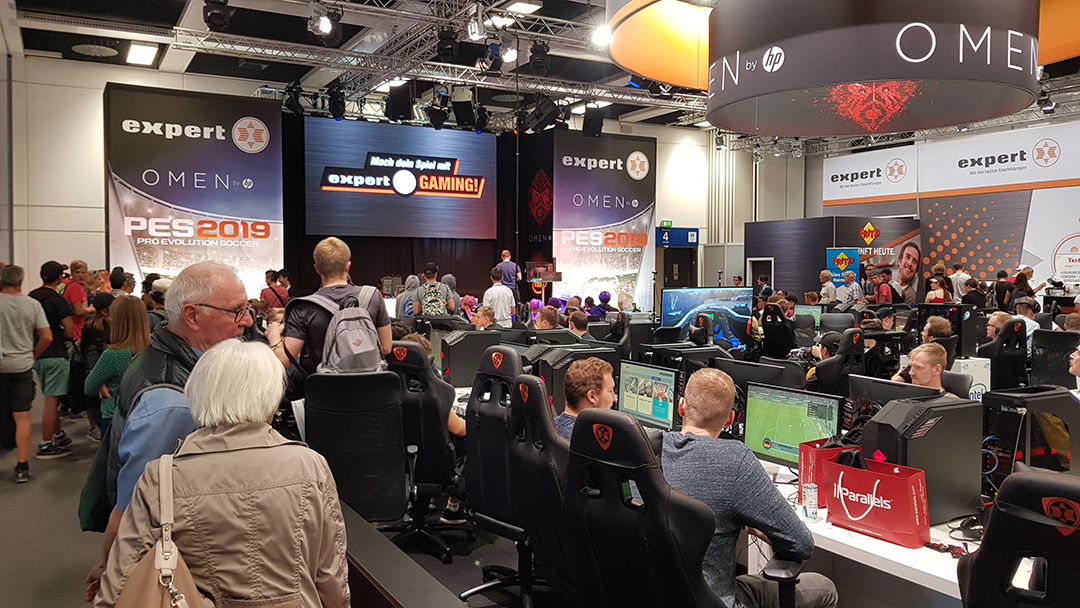
The event had a whole program where it was possible to talk with the developers, see concept art, get a bunch of souvenirs and play video game news before the release.

For example, it was possible to play Spider-Man on PS4 a few days earlier. True, the demo was the same as at E3 2018.

Sony, as always, was on top. They were able to relax and have some fun and sweat after playing VR.
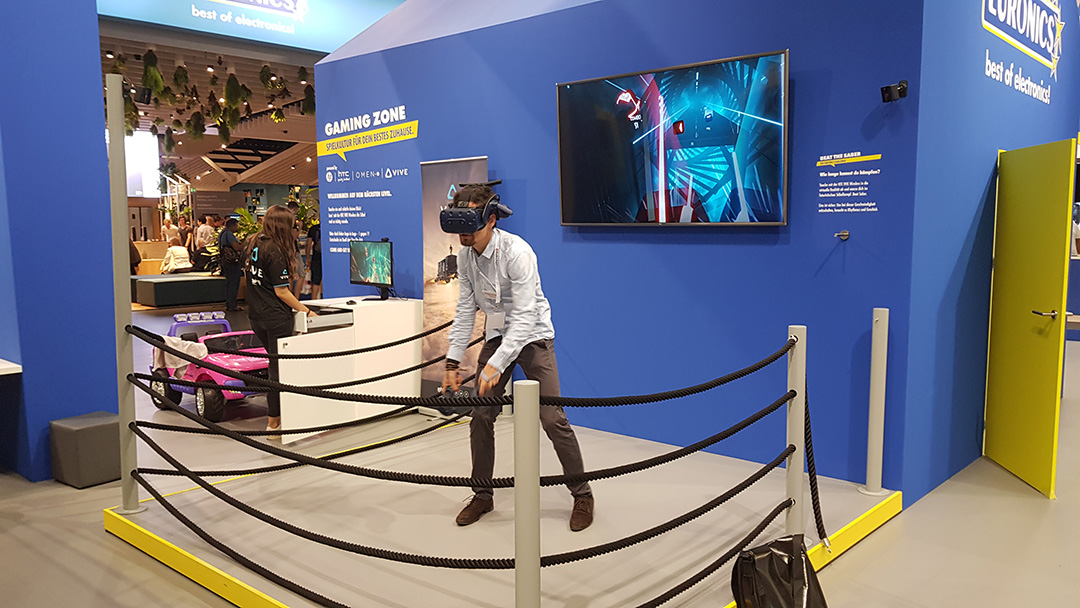
Nintendo, too, did not lag behind, putting up stands with brand new Switch. It's a paradox, but a bigger crowd gathered in Mario than in Spider Man. Nintendo products are very popular in the European gaming community.
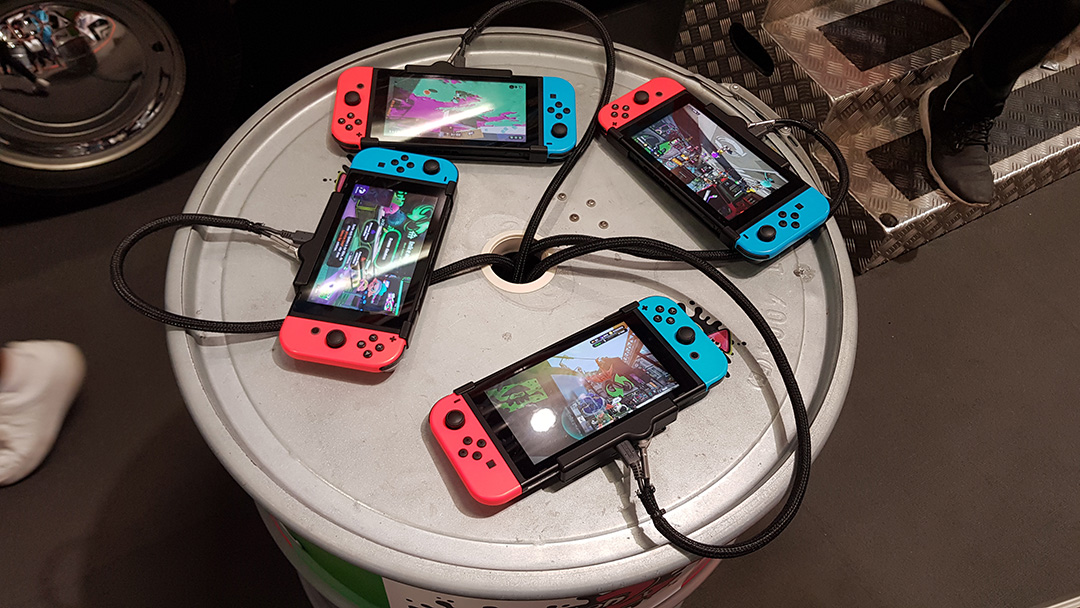
In general, gamers here really had something to do. It was interesting, but this is not the level of exhibitions that are specifically devoted to video games and consoles. At the IFA 2018 gaming theme, only one room was allotted.
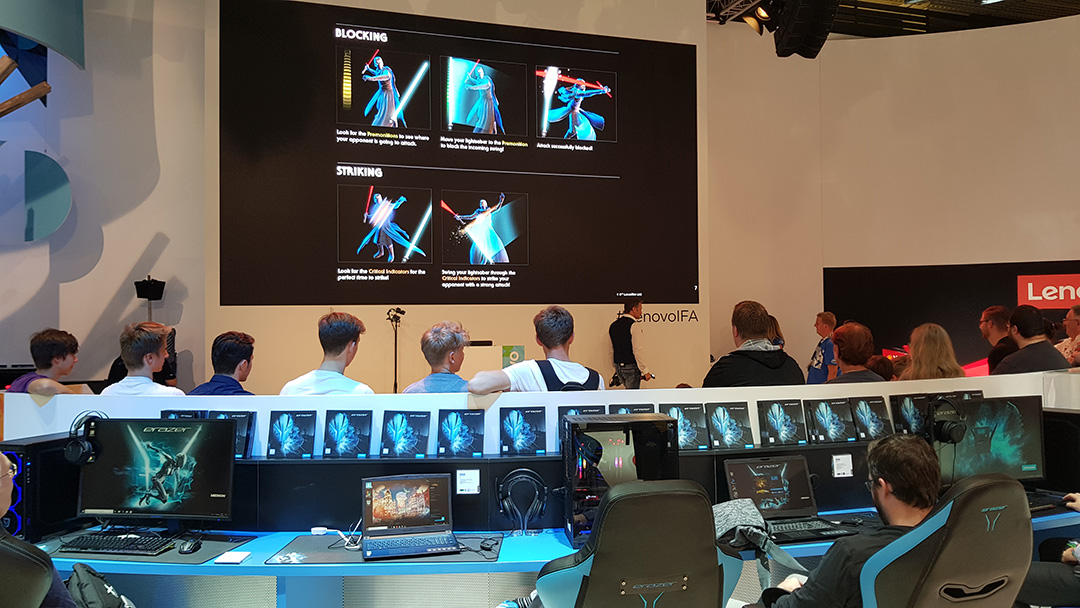
Overall, the atmosphere at the IFA 2018 was excellent. Everywhere a lot of young people, active and positive people, you can make a lot of acquaintances. A few hours at the exhibition fly by absolutely unnoticed. It is easy to have a snack in between times - mini-kiosks with food and drinks are everywhere.
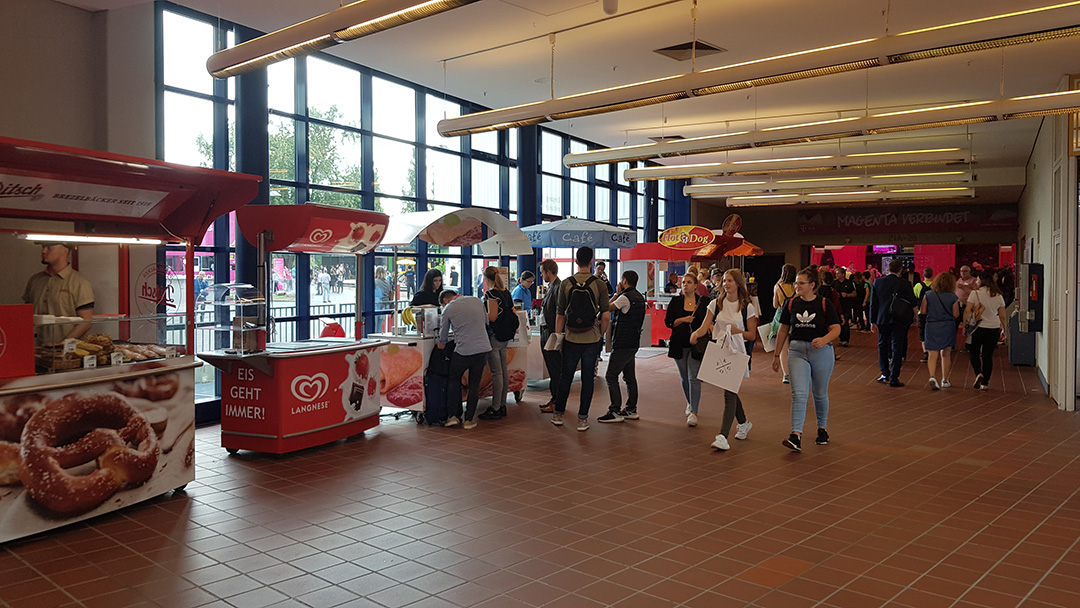
It was where to take pictures. On the one hand, there is fun for visitors, on the other hand, there is an extra advertisement both for the exhibition itself and for the companies represented there.
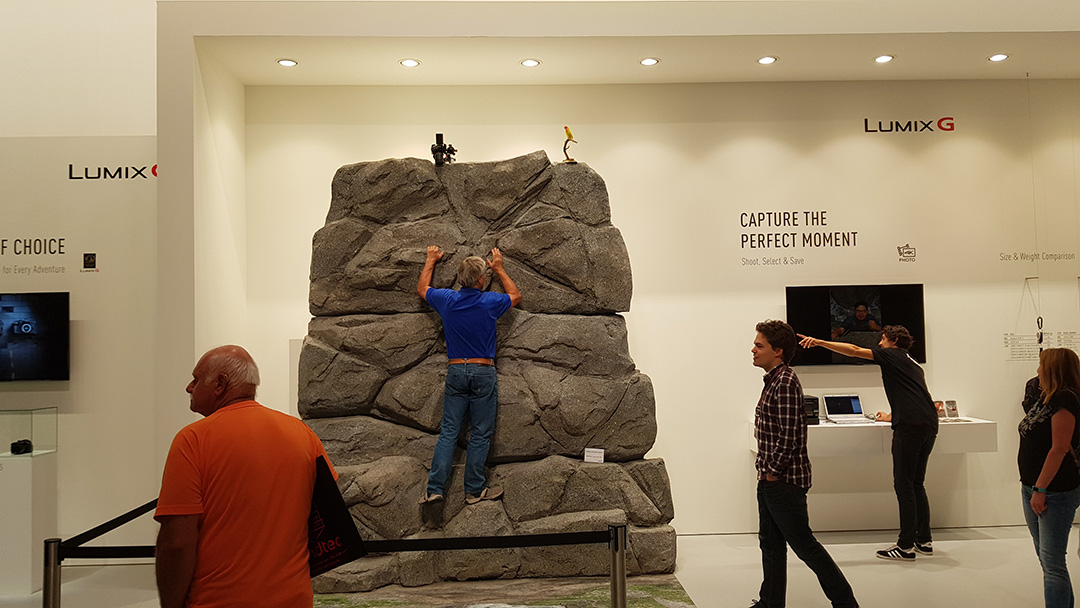
I definitely like this atmosphere. At IFA you can safely spend a few days, especially if you go with a good company. Not all of the products on display are truly useful, but it is interesting to watch them, plus something useful can also be found. You can see what technology has reached, familiarize yourself, touch and decide what you personally need and what not. Very cool!
Would you go to an IFA or a similar exhibition? Maybe already visited?
I often travel to different cities in Europe for major events devoted to future projects related to the world of electronics and digital technology. I would be glad to occasionally publish information about their visit to Habré, if it turns out to be interesting to readers.
The article for Habr was prepared by Chris The Rebel (Vladimir Adoshev)
Source: https://habr.com/ru/post/422817/
All Articles